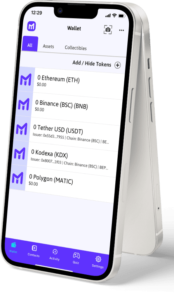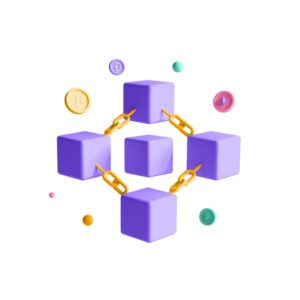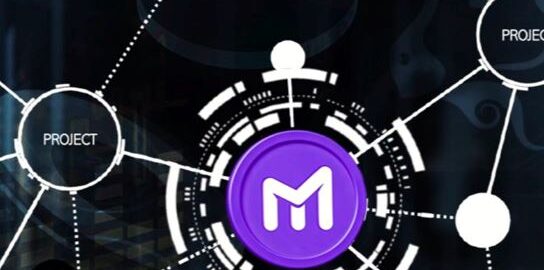Treatment of cryptodevices

Send, store, receive or request cryptocurrencies in seconds via Mosaic Wallet.
Multilingual support
Mosaic Wallet currently supports six languages, including Hungarian. More languages will be available soon.
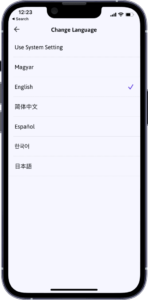
Get in touch with your friends and family

Save your contacts in the address book so you can send them money anytime, anywhere, in seconds!
Learn and search
Take the quiz in the Mosaic Wallet app to win a free NFT reward!

Make a backup of your wallet
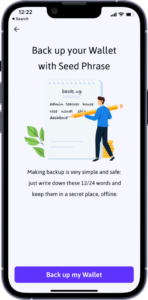
For increased security, back up your wallet with a 12-word English code! With these words, you can restore your wallet at any time.
Free of charge and without obligation!
If you have questions or want to join, find the person who shared this page with you.
If you don't have a specific recommendation, you can start the registration process on your own by clicking on the button below.
If you don't have a recommendation, but still have questions, please give us your phone number and the time frame when it is most convenient for you to contact us!
Administration according to your needs.
Frequently Asked Questions (FAQ)
How to imagine the blockchain? Laci loves Kati and tells her so. But later Laci can deny that she ever said such a thing. The blockchain is imagined in such a way that when Laci tells Kati that he loves her, this information is communicated to 10,000 people. This way Laci cannot deny later that he told Kati that he loved her. So there is data in the blockchain and it is not stored in one or two places, but in 10,000 places. When the data is in one place, or only on a few servers, it can be falsified, either from the inside or by a hacker attack. What makes the blockchain and the data stored in it unforgeable is that it is not copied on a few servers, but on 10,000 servers. If data on some servers were to be forged, the other servers would not approve. In the traditional world when we transfer money to each other it is between accounts, this is not the case for bitcoin blockchain. When we say that Pali transfers 1 Bitcoin to Peti, the Bitcoin is not actually moving between wallets. The Bitcoin stays in the same place on the 10.000 servers as data, only the blockchain authentically records the information that Peti is now the owner of that 1 Bitcoin and not Pali.
A cryptocurrency (or cryptocurrency) is digital money that uses cryptography (i.e. encryption) to make payments secure. Most cryptocurrencies are decentralised, which means that they are not run by a central bank or company, but are distributed across users' computers. The technology used for this is blockchain, which allows a database of transactions to be stored on multiple computers in a secure, non-tamper-proof way. The first and best-known cryptocurrency is Bitcoin, but there are many others like it. You can send or receive money in cryptocurrencies in the same way as in other currencies, but the transfer is usually cheaper, especially if you need to move money between countries. Unlike a traditional bank account, cryptocurrency is usually not linked to a specific person, so there is no way of knowing who owns it. Source.
The term pre-token refers to a crypto payment instrument that is exchanged for another crypto payment instrument over time. In Novalusprime's system, this means that until the complete Mosaic blockchain is completed, including its payment Mosaic coin, Mosaic pre-tokens are put into circulation and use. Once the blockchain has been launched, the pre-tokens are converted into Mosaic coins according to specific rules and are then withdrawn.
Decentralised networks are not under the control of a single individual or company, but operate as a peer-to-peer network, which means that all the computers (full nodes) in the network store the distributed data. If a node or participant goes down, the network remains operational. Hacking decentralised networks is not a very profitable venture, as each participant in the network has a copy of the data, so that fraudulent data can be checked immediately and fraud can be detected immediately. In centralised networks, a single person or company controls the blockchain network. Users are vulnerable, dependent on the controllers.
In the world of cryptocurrencies, there are basically two ways to conduct different transactions. There are custody solutions and trustless solutions that do not require centralised custody. In practice, this means that while users have to deposit their money with the service provider to use a centrally managed platform, in a trustless system the user's money remains in his or her own wallet at all times, with no access rights for anyone else. In the case of a custody platform, an additional risk to customers' money could be a possible hacker attack on the provider, or if the provider goes bankrupt, customers' money could be lost. In contrast, trustless systems do not require any trust on the part of the customer, as no money is handled by the provider, as the users' money remains in their own wallets at all times. In this case, the service provider only provides the technical background for the users to carry out a transaction.
In Novalus Prime, the pool is used to group pre-tokens. A pool will contain a certain amount of pre-tokens from week to week. Users are given access to each pool based on their privileges. In practice, this means that they decide which pool they will receive pre-tokens from each week by purchasing a package. The specific weekly amount of pre-tokens they receive depends on how many people are entitled to a share of that pool. The weekly pool of pre-tokens will be distributed equally among the eligible participants.
Staking means that a participant who holds a certain amount of cryptocurrency commits the amount of cryptocurrency he or she holds for a certain period of time and validates transactions depending on the amount of cryptocurrency held. Stakers essentially help validate and verify the blockchain transactions, which is done by validators. Therefore, the networks reward these investors with interest on the cryptocurrency deposited!
The mosaic blockchain will work on a "pos" consensus basis, and to achieve decentralised status, it needs validators who deposit a certain amount of coins and run their validator nodes. The more validators there are, the more geologically dispersed they are, the more decentralised the system is, the more reliable it is. The validators of the mosaic blockchain will be provided with the company's pre-configured machines, which will receive a steady stream of newly circulating mosaic coins once they are installed. Two types of validator status are distinguished on the mosaic blockchain. One will operate on the basis of a "pos" consensus and the other on the basis of a "dpos", i.e. delegated proof of stake consensus.
Proof of Stake is the consensus algorithm used by cryptocurrencies to authenticate transactions. With the Proof of Stake algorithm, there are no miners using high-powered computer chips to mine cryptocurrencies, but rather blocks are created by people randomly selected by the system. The selection is based on the amount of cryptocurrency they own and the length of time that the money has been in the possession of the selected person. The Proof of Stake algorithm has the advantage of using less energy, making it cost-effective and environmentally friendly.
A Delegated Proof of Stake (DPoS) is a cryptocurrency governance mechanism where participants elect delegates by voting, who then certify the blocks on behalf of other participants. Some cryptocurrencies use the Proof of Work (Bitcoin) or Proof of Stake algorithm (Dash). Delegated Proof of Stake is the third type of consensus algorithm. In the Proof of Work mechanism, anyone can join the network as a verifier if they have the means to mine it. With Proof of Stake, anyone can produce blocks if they have enough of a given cryptocurrency. Delegated Proof of Stake is a little different from the other two algorithms. In this case, only the selected verifiers can create a new block. They are called "witnesses", they make the network secure and they make sure that no one spends twice. Anyone who has all the coins can participate in voting for witnesses. There is no minimum amount to vote, but the votes of participants count in proportion to the amount of coins they have. In the case of EOS, for example, there are 21 witnesses (delegates), who are selected by EOS holders to approve transactions. If the witnesses do not behave properly, they are removed by the voters. Participants are encouraged to become witnesses as they are paid for their work. Cryptocurrencies that use the DPoS consensus algorithm are capable of executing thousands of transactions per second.

